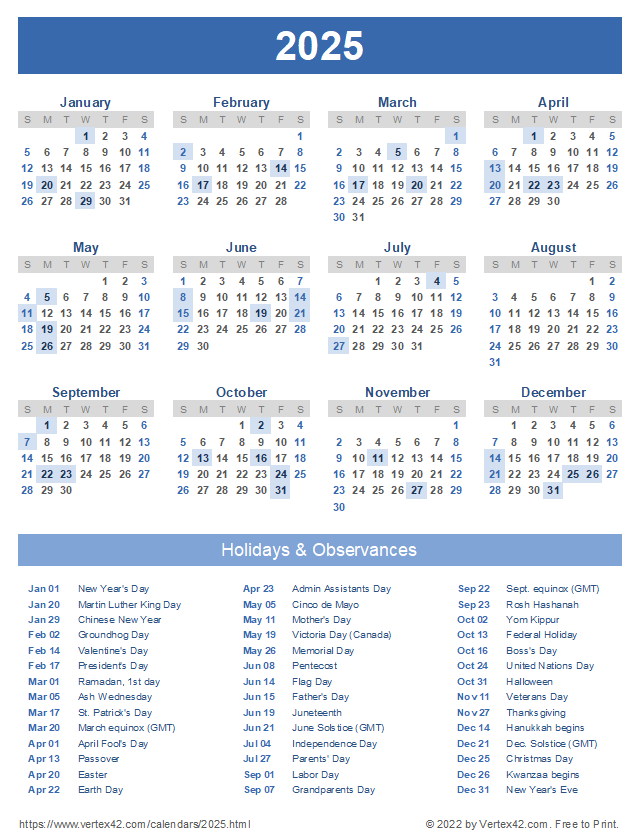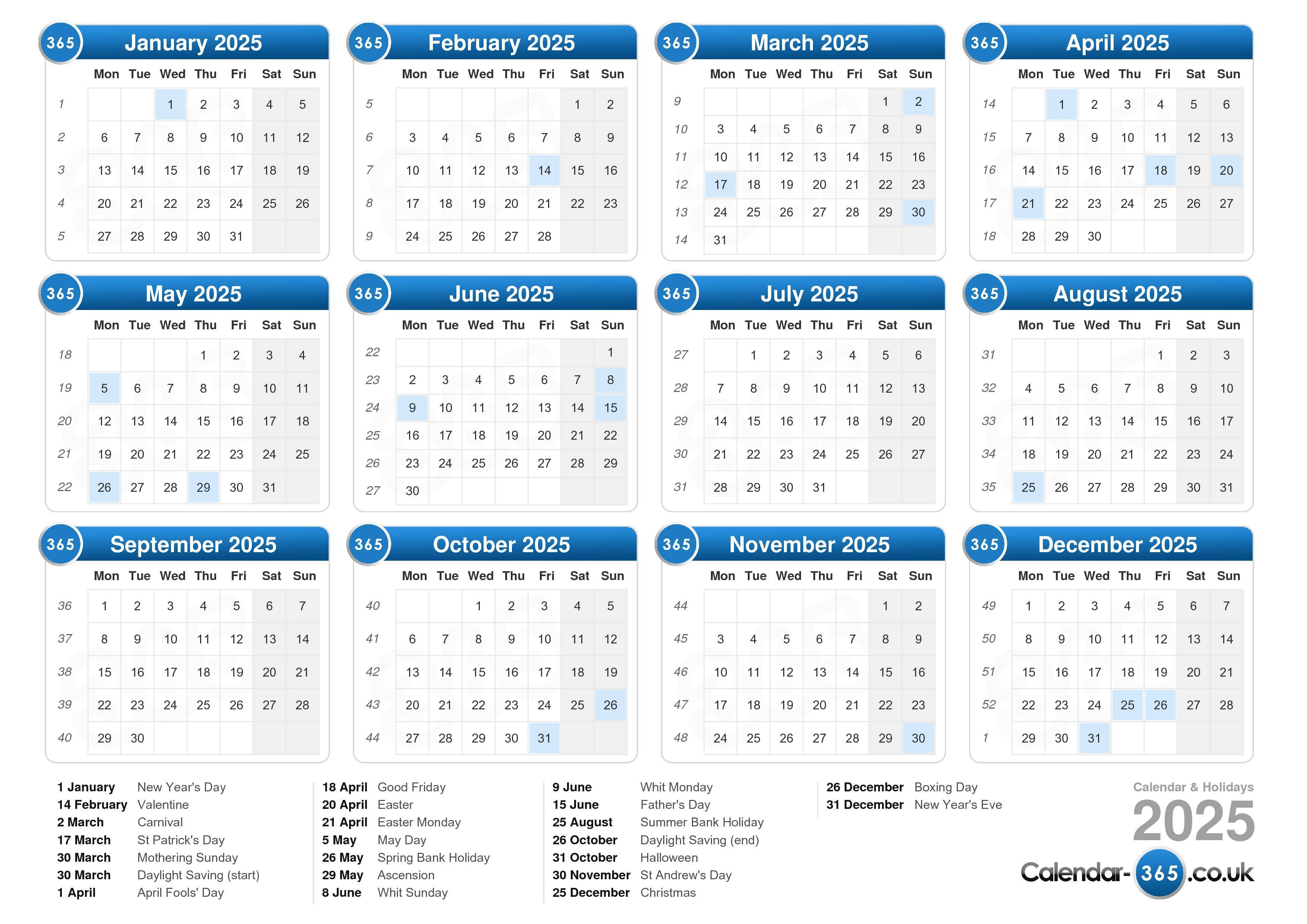Navigating the Global Calendar: A Guide to International Holidays in 2025
Related Articles: Navigating the Global Calendar: A Guide to International Holidays in 2025
Introduction
With great pleasure, we will explore the intriguing topic related to Navigating the Global Calendar: A Guide to International Holidays in 2025. Let’s weave interesting information and offer fresh perspectives to the readers.
Table of Content
Navigating the Global Calendar: A Guide to International Holidays in 2025

The world is a tapestry woven with diverse cultures, each celebrating life’s milestones and moments of significance through unique traditions. Understanding these celebrations, embodied in international holidays, offers a window into the heart of different societies and provides opportunities for global connection and understanding.
While a comprehensive list of all international holidays for 2025 would be extensive, this article focuses on a selection of prominent global observances, highlighting their significance and potential for enriching cross-cultural awareness.
January
- New Year’s Day (January 1st): A universal celebration marking the beginning of a new year, observed across the globe with various festivities.
- World Braille Day (January 4th): Honoring Louis Braille, the inventor of the braille reading and writing system for the blind, this day raises awareness about the importance of literacy for visually impaired individuals.
- Martin Luther King Jr. Day (Third Monday of January): A US federal holiday honoring the life and legacy of civil rights leader Martin Luther King Jr., this day encourages reflection on social justice and equality.
- International Holocaust Remembrance Day (January 27th): Commemorating the victims of the Holocaust, this day serves as a solemn reminder of the atrocities committed during World War II and the importance of combating antisemitism and all forms of intolerance.
February
- Groundhog Day (February 2nd): A lighthearted tradition celebrated in the US and Canada, Groundhog Day revolves around the belief that a groundhog emerging from its burrow on this day predicts the length of winter.
- Chinese New Year (Specific date varies based on the lunar calendar): A major festival celebrated by Chinese communities worldwide, Chinese New Year marks the beginning of a new year according to the lunisolar calendar.
- Valentine’s Day (February 14th): A global celebration of love and affection, Valentine’s Day is often marked with romantic gestures, gifts, and expressions of endearment.
- International Mother Language Day (February 21st): Celebrating linguistic diversity and promoting the preservation of endangered languages, this day emphasizes the importance of multilingualism and cultural heritage.
March
- International Women’s Day (March 8th): A global celebration of women’s achievements and a call for gender equality, International Women’s Day highlights the ongoing fight for women’s rights and empowerment.
- St. Patrick’s Day (March 17th): A cultural and religious celebration of Ireland’s patron saint, St. Patrick’s Day is marked by parades, traditional Irish music, and the wearing of green.
- Nowruz (March 21st): The Persian New Year, celebrated by many cultures across Central Asia, the Middle East, and the Balkans, marks the beginning of spring and is observed with festivities and family gatherings.
April
- April Fools’ Day (April 1st): A lighthearted day of practical jokes and playful pranks, April Fools’ Day is celebrated across many cultures as a day for harmless fun.
- Easter (Specific date varies based on the lunar calendar): A Christian holiday commemorating the resurrection of Jesus Christ, Easter is observed with religious services, egg hunts, and family gatherings.
- Earth Day (April 22nd): A global event dedicated to environmental protection and raising awareness about climate change, Earth Day encourages actions to preserve the planet’s natural resources.
May
- May Day (May 1st): An international celebration of labor and workers’ rights, May Day is observed with parades, demonstrations, and celebrations of worker achievements.
- Mother’s Day (Second Sunday of May): A global celebration of mothers and motherhood, Mother’s Day is a day to express gratitude and appreciation for mothers’ love and care.
- International Star Wars Day (May 4th): A fan-created holiday celebrating the Star Wars franchise, May the 4th is a day for Star Wars enthusiasts to gather and enjoy their shared passion.
June
- International Day of Peace (September 21st): A global day dedicated to promoting peace and understanding among all people, International Day of Peace encourages peaceful conflict resolution and the cessation of violence.
- Father’s Day (Third Sunday of June): A global celebration of fathers and fatherhood, Father’s Day is a day to honor fathers and express appreciation for their love, guidance, and support.
July
- Canada Day (July 1st): A national holiday celebrating the anniversary of Canada’s confederation, Canada Day is marked with parades, fireworks, and celebrations of Canadian identity.
- Independence Day (July 4th): A US national holiday celebrating the anniversary of the signing of the Declaration of Independence, Independence Day is marked with fireworks, parades, and celebrations of American patriotism.
August
- International Day of the World’s Indigenous Peoples (August 9th): A global day recognizing the rights and contributions of Indigenous peoples worldwide, this day promotes awareness of Indigenous cultures, languages, and traditions.
- International Youth Day (August 12th): A global day celebrating the contributions of young people to society, International Youth Day highlights the importance of empowering young people and providing them with opportunities to thrive.
September
- International Day of Peace (September 21st): A global day dedicated to promoting peace and understanding among all people, International Day of Peace encourages peaceful conflict resolution and the cessation of violence.
- World Alzheimer’s Day (September 21st): A global day raising awareness about Alzheimer’s disease and other forms of dementia, World Alzheimer’s Day aims to promote research, support for patients and families, and the development of effective treatments.
- International Day for the Elimination of Violence against Women (November 25th): A global day dedicated to raising awareness about violence against women and girls, this day encourages action to prevent and eliminate all forms of violence against women and girls.
October
- World Animal Day (October 4th): A global day dedicated to celebrating and protecting animals, World Animal Day encourages compassion for all animals and promotes responsible pet ownership.
- Halloween (October 31st): A celebration of the autumn harvest and the thinning veil between the worlds, Halloween is observed with costumes, trick-or-treating, and spooky decorations.
November
- Diwali (Specific date varies based on the lunar calendar): A major festival celebrated by Hindus, Sikhs, and Jains, Diwali marks the victory of light over darkness and good over evil.
- Thanksgiving (Fourth Thursday of November): A US national holiday celebrated with a feast and a focus on gratitude, Thanksgiving commemorates the harvest and the blessings of the year.
- International Day for the Elimination of Violence against Women (November 25th): A global day dedicated to raising awareness about violence against women and girls, this day encourages action to prevent and eliminate all forms of violence against women and girls.
December
- Hanukkah (Specific date varies based on the lunar calendar): An eight-day Jewish festival celebrating the rededication of the Second Temple in Jerusalem, Hanukkah is observed with the lighting of candles on a menorah, the eating of latkes, and other traditional customs.
- Christmas Day (December 25th): A Christian holiday celebrating the birth of Jesus Christ, Christmas is observed with religious services, gift-giving, and family gatherings.
- New Year’s Eve (December 31st): A global celebration marking the end of the year, New Year’s Eve is often observed with parties, fireworks, and resolutions for the coming year.
Beyond the Calendar: The Importance of International Holidays
International holidays offer more than just a break from routine. They provide opportunities for:
- Cultural Exploration: Learning about different cultures through their celebrations expands our understanding of the world and fosters empathy and respect for diversity.
- Global Connection: Sharing in celebrations with people from different backgrounds builds bridges of understanding and strengthens global connections.
- Personal Reflection: Many holidays offer moments for introspection and reflection on personal values, beliefs, and relationships.
- Community Building: Holiday celebrations often bring communities together, fostering a sense of belonging and shared experience.
FAQs about International Holidays:
Q: How can I learn more about specific international holidays?
A: Numerous resources are available online and in libraries, including websites dedicated to holidays, cultural organizations, and travel guides.
Q: Is it appropriate to participate in celebrations of holidays that are not my own?
A: While it is important to be respectful of cultural traditions, participating in celebrations can be a meaningful way to learn and connect with others. However, it is essential to approach participation with sensitivity and a genuine desire to understand the meaning behind the celebrations.
Q: What are some tips for celebrating international holidays respectfully?
A:
- Research the history and significance of the holiday: Understanding the cultural context behind a celebration is crucial for respectful participation.
- Avoid cultural appropriation: Using cultural elements for personal gain or entertainment without understanding their true meaning can be offensive.
- Be mindful of local customs: Different cultures have different norms and expectations regarding holiday celebrations. It is important to be aware of these customs and follow them respectfully.
- Engage in respectful dialogue: Asking questions and listening to others’ perspectives can deepen understanding and build bridges of communication.
Conclusion:
International holidays offer a vibrant tapestry of cultural expressions, connecting individuals and communities across the globe. By understanding and celebrating these diverse observances, we can foster a more interconnected and harmonious world. Let us embrace the opportunity to learn, connect, and celebrate together, recognizing the richness and beauty that lies in the diversity of human traditions.








Closure
Thus, we hope this article has provided valuable insights into Navigating the Global Calendar: A Guide to International Holidays in 2025. We appreciate your attention to our article. See you in our next article!
